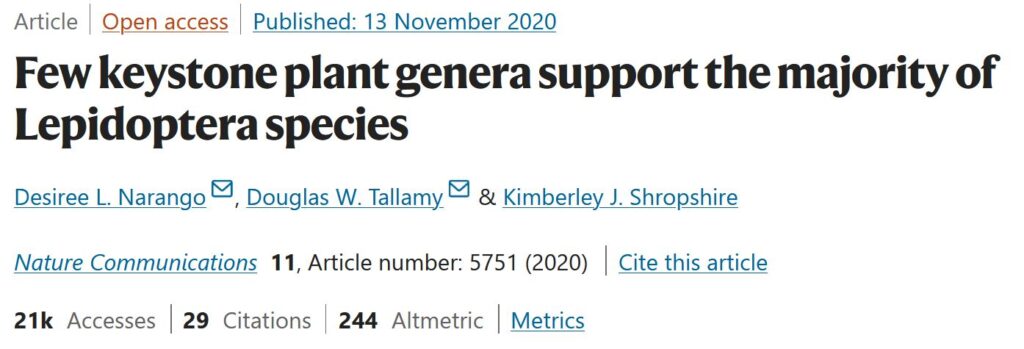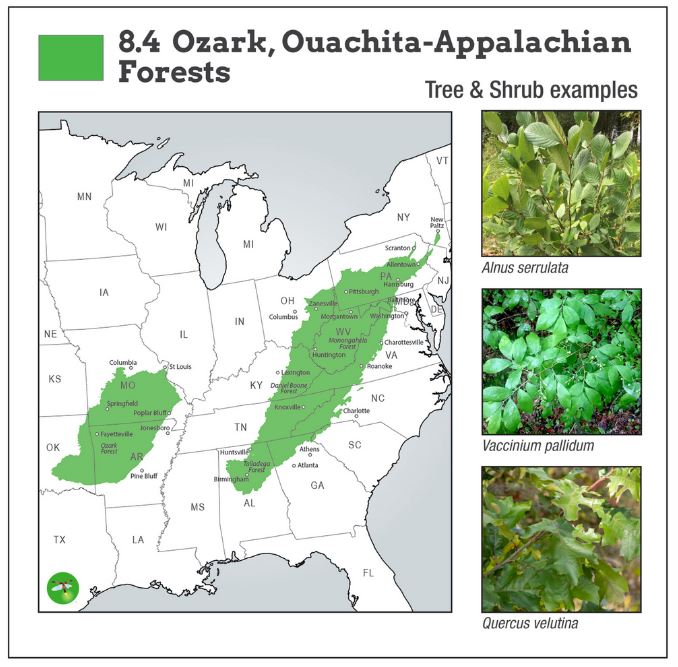
Keystone plants are plants that feed the greatest number and diversity of insects. Like the wedge-shaped keystone that holds an arch together, keystone plants hold entire ecosystems together. Plants are primary producers that capture the sun’s energy, and keystone plants drive that solar energy through local foodwebs by feeding insects, birds, and all the animals that eat insects and birds. Without planting the right kind of plants, the available energy for animals and fungi is greatly reduced. Native insects and birds have co-evolved with native plants and, therefore, depend upon them. Native insects and birds have developed elaborate biochemical strategies to safely digest the toxins that native plants produce, and which make most of them inedible to humans.
When exotic horticultural plants are introduced to North America, they generally leave behind their insectivorous predators, while native North American insects lack the co-evolutionary history required to metabolize their toxins. This is the reason so many exotic ornamental plants are “insect resistant” and also the reason such exotic plants have the potential to wreak havoc as invasive species. Freedom from insect herbivory allows exotic plants to grow vigorously and spread without control.
For this reason, it is critically important to include as many keystone plants as possible in your home landscape. Oak trees, for example, can support 500+ species of caterpillars (which are juicy hamburgers to birds)! Fortunately, there is now more than a decade of science underpinning the identification of keystone plants, which you can find on websites like Homegrown National Park, National Wildlife Federation and Xerces Society.

Native Plant lists and Butterfly Host Plants (mostly native)
Some of our members have been kind enough to compile and share lists of plants that do well in our area. Check out the Xerces Society’s list of recommended Monarch nectar plants and other useful resources. An extensive list of butterfly host plants can be found on the Alabama Butterfly Atlas. If you are looking for host plants for specialist bees (about 25% of native bees are host specialists), Jarrod Fowler’s website is an excellent one.
